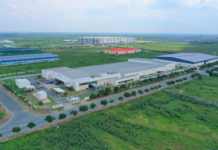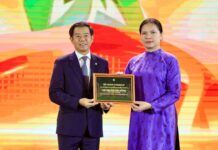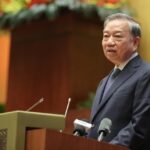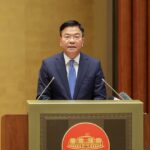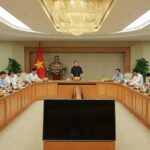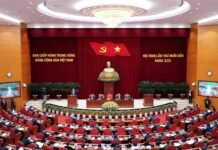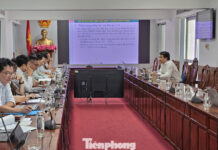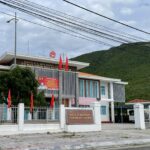On September 16th, the Politburo and the Secretariat hosted a nationwide conference to disseminate four newly adopted resolutions. The event was conducted both in-person and online, with over 1.2 million Party members in attendance.
Prime Minister Pham Minh Chinh presented a keynote on Resolution 71 issued by the Politburo, focusing on breakthroughs in education and training, alongside the government’s action plan. He noted that the resolution, crafted over four months under the direct guidance of General Secretary To Lam, holds strategic significance for developing a high-quality workforce.
The Prime Minister highlighted that Vietnam’s primary education has surpassed the OECD average and ranks highly in the region. From 2013 to 2024, Vietnamese students secured 438 medals in international Olympiads. In 2024, Vietnam published over 22,500 scientific articles in the Scopus database, with approximately 85% originating from domestic universities and the remainder from research institutes, hospitals, and businesses. Vocational training has reached a scale of 2.5 million trainees annually. Vietnam is among the 21 countries to have achieved the UN’s Sustainable Development Goal for quality education ahead of schedule.
However, he also identified bottlenecks, such as education budgets consistently falling below 20% of total expenditures, with the past five years below 18%. The country faces a shortage of approximately 102,000 teachers across all levels. Learning conditions remain uneven, and higher education and vocational training still lag behind international standards. A focus on degrees and titles, coupled with overlapping administrative mechanisms, has diminished system efficiency.
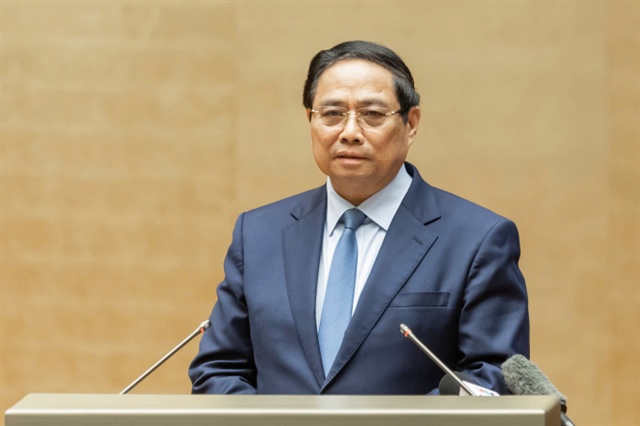
Prime Minister Pham Minh Chinh addressing the conference on September 16th. Photo: Hoang Phong |
Resolution 71 underscores education and training as the nation’s top priority and the key determinant of the country’s future. It emphasizes learners at the center, schools as the foundation, and educators as the driving force. The resolution promotes a balance between theory and practice, linking schools with society. Preschool and primary education are seen as foundational for character development, vocational training as crucial for skilled labor, and higher education as essential for nurturing talent and advancing science, technology, and innovation.
A National Scholarship Fund will be established using state budgets and other lawful sources to support learning, overseas studies, and talent retention, with a focus on PhDs in fundamental sciences, engineering, and technology. The government will increase education spending, aiming for 5% in investment and 3% in higher education. Priority will be given to land allocation, fee waivers, and credit expansion for educational institutions, alongside public-private partnerships.
The resolution calls for a shift from administrative management to developmental governance, eliminating school councils in public institutions, and integrating Party leadership roles to streamline operations. Enhanced autonomy for educational institutions will ensure academic freedom, internal governance, and international collaboration, independent of financial self-sufficiency.
Policies for educators are a key focus. Adequate staffing will be ensured, with increased allowances and programs to attract outstanding foreign faculty. Talented individuals will be encouraged to teach specialized subjects. Alongside the National Scholarship Fund, the government will introduce a unified national textbook set by 2026-2027 and aim for free textbooks by 2030.
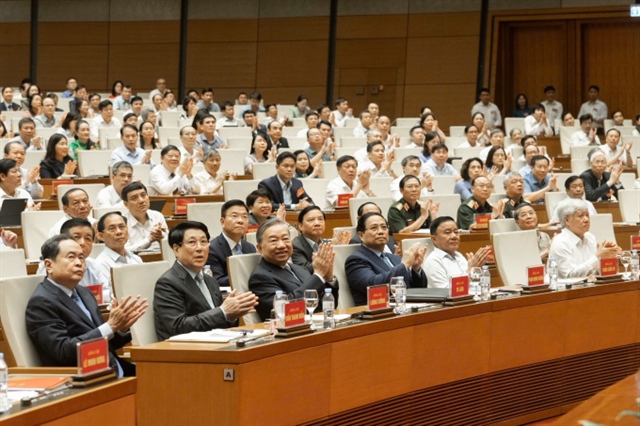 Delegates at the national conference on September 16th to implement the four newly issued Politburo resolutions. Photo: Hoang Phong |
Digital Transformation and AI as Core Pillars
The Prime Minister emphasized that the resolution aims for comprehensive digital transformation, developing a national education and labor information system linked to job market data. Digital technology and AI will be integrated into teaching, learning, and management. English will progressively become a second language in schools, and AI will be introduced in primary education, starting as early as first grade, with a “learn through play” approach suitable for young learners.
Targets are set with clear timelines. By 2030, 80% of primary schools will meet national standards, at least 8 universities will rank among Asia’s top 200, and one will be in the global top 100 in specific fields. The proportion of workers with college or higher education will reach 24%, with a minimum of 35% in fundamental sciences, engineering, and technology.
By 2035, universal upper secondary education will be achieved, with two universities aiming for the global top 100. By 2045, Vietnam’s education system will be modern, equitable, and high-quality, ranking among the top 20 globally. A highly skilled workforce will be a core competitive advantage, propelling Vietnam toward becoming a developed, high-income nation.
Immediate implementation began with the government’s Resolution 281 on September 15th, outlining 36 goals and 151 tasks under the “6 Clears” principle: clear roles, tasks, responsibilities, authorities, timelines, and outcomes. In 2025, the Ministry of Education and Training will finalize amendments to the Laws on Education, Higher Education, and Vocational Training.
The Ministry will also review the primary education curriculum, establish a roadmap for teacher salaries and allowances, and restructure higher education and vocational systems, merging or dissolving substandard institutions. The elimination of school councils in public institutions will be completed by September 2026. The government will commence construction of 100 boarding schools in border areas in October 2025, with completion by August 30th, 2026.
“Education and training are the keys to unlocking the future, cultivating global citizens fluent in Vietnamese and proficient in widely used languages like English,” stated the Prime Minister. Resolution 71, with its revolutionary measures, is expected to invigorate the sector, inspiring students, educators, and the entire education community to contribute to national development.
Vu Tuan
– 10:42 16/09/2025
Deputy Prime Minister: Government Secures Funding for Universal Healthcare Exemption
On the morning of September 16th, during the National Conference on Implementing the Political Bureau’s Resolutions, Deputy Prime Minister Lê Thành Long presented Topic 2, focusing on the key and core contents of Resolution No. 72-NQ/TW dated September 9, 2025, issued by the Political Bureau. This resolution outlines breakthrough solutions to enhance the protection, care, and improvement of the people’s health, along with the Government’s Action Plan to implement it.
Streamlining Construction Permits: The ‘One-Stop, One-Lock’ Approach to Approval and Licensing
Revolutionizing the construction permit process, Deputy Director of Hanoi’s Department of Construction, Luyen Van Phuong, has proposed a transformative reform in the revised Construction Law draft. His advocacy for a streamlined “one-stop, one-lock” mechanism aims to simultaneously evaluate and significantly reduce processing times, garnering widespread attention as a pivotal step toward administrative efficiency.
NCB Bank’s Two Distinctive Milestones in September
In September, amidst the proud atmosphere of the 2/9 National Day and the 30th anniversary of its establishment, NCB ignited the emotions of millions of Vietnamese with two remarkable milestones: partnering with the million-view MV “Vietnam – Proudly Stepping into the Future” and launching the special edition NCB Visa “Pride” credit card.











